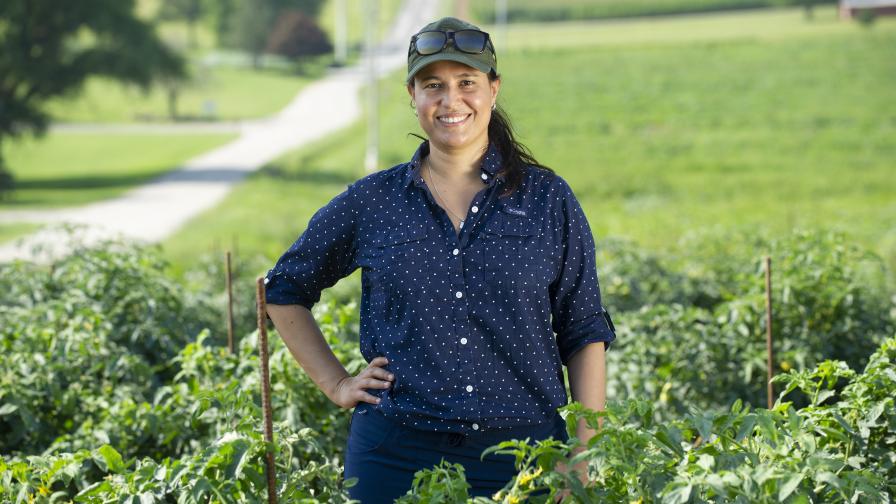More Education Needed for Produce Growers on Biological Solutions
Smaller-acreage growers generally don’t have a good grasp of biological solutions when compared to larger growers, a fact that became clear when reviewing American Fruit Grower’s annual State of the Industry survey of the nation’s growers. Industry suppliers clearly believe more education is necessary.
Asked what can be done to bridge this gap, ensuring as much as possible that smaller growers are as fully informed about their options as their larger counterparts, Magna-Bon President Frank Miele answered simply: “Education. Education. Education. We’d recommend partnering with your regional associations, attending tradeshows, and participating in events, such as walking the tradeshow floor, and registering for digital and print publications.”
What’s remarkable about Miele’s response is that two other suppliers, when asked the same question, began their responses with the exact same three words: “Education, Education, Education.” Here is a sampling of responses.
Jordan Martin, Northeast Business Unit Director, TimacAGRO: “Education, education, education, and not just the growers. Larger growers tend to get the attention of industry representatives. That means they are first to know and understand what is new in the industry. They also tend to pull from a wider range of suppliers, which means they have more access to information from a wider range of industry experts. The best way to bridge the information gap between large and small growers is to provide educational opportunities that are accessible to everyone, and this also includes ag retailers that support the smaller grower. Many times, the smaller grower gets their information from ag retail or state Extension and focusing on both of these will help. Second, good practical research-based recommendations go a long way. Smaller growers may not want to trial something on a block to determine the success, so good research-based recommendations help.”
Peter Bierma, President/CEO, Sym-Agro: “Depending on the size and location of the grower they may be too small to warrant distributors’ time for the education process. Their best option would be to attend Extension seminars and do online research on IPM and biological pest control strategy workshops and seminars. They probably need to find a good local or close-by independent consultant who can help them with this because not a lot of distributors or retail consultants have focused on this area.”
Ted Walter, U.S. GreenSolutions Marketing Manager, AMVAC: “Education, education, education. And education starts with the manufacturer. AMVAC has invested in collaboration with private researchers, universities, growers, and PCAs [pest control advisers] to conduct field trials so it can generate insights into the proper timing, rates, and combination needed to ensure biological products can truly add value.
“Third-party replicated trial data in combination with downstream before and after technical sales support — that’s the needed combination for growers to feel comfortable and educated in using biologicals. To help with education, AMVAC recently launched AMVAC Academy, which contains self-guided modules that walk registered users through a product description; explore the threats that crops face, along with solutions; share product features and benefits; advise on product use, handling, and application; and give examples of product performance.”
Jason Kuhlemeier, VP Marketing, AgBiome: “For us and our colleagues in biological innovation, we must focus on offering education to growers of all operation sizes to ensure they are aware of the options available to them. This includes providing research-based and third-party information to pro-vide the best data available to help them make decisions about how to incorporate biologicals on their farms. We have invested in equipping growers, retailers, and agronomic advisors with the educational tools they need to confidently navigate the increasing choice found in crop protection solutions.”
Rodrigo Bermudez, Director of the West and LATAM Regions, Locus Agricultural Solutions: “Larger growers usually have a professional growing staff that has the availability to continue their education or take the time out of their day to read technical articles. This gives them more access to information on new developments and technologies. A smaller grower is beset by an 80-hour work week and potentially limited staff or resources. They may not be able to attend high-cost training or conferences. The best way to bridge the educational gap on topics such as biologicals is to spread information in a uniform way that makes it accessible to all growers. This can be done by supporting and sponsoring local ag Extension programs at the municipal, state, and federal levels. In the commercial or private sector, providing succinct, easy-to-read technical sheets — whether in magazines or handouts. These are important to help educate growers on topics such as biologicals in a concise manner.”
Bill Foster, CEO, BioWorks: There may be a few opportunities to help the smaller growers gain confidence in using biological products:
• Attend educational programs at the regional and national levels. Examples include Cultivate (Columbus, OH), an excellent opportunity to learn from the experts and to hear from the manufactures, and Meister Media Worldwide’s BioSolutionsSM Conference & Expo (Reno, NV).
• Talk to other operations of similar size that have successfully implemented biological products, and ideally, visit them to see what they did and are doing to place their trust in biological products.
• Talk to their distributor representatives on what’s working and how to make it work.
• Contact the manufacturer, and while direct resources may not be available from the manufacturer, visit their website, watch videos, read technical sheets, and other ways to understand how to use biological products in their growing operation(s).









